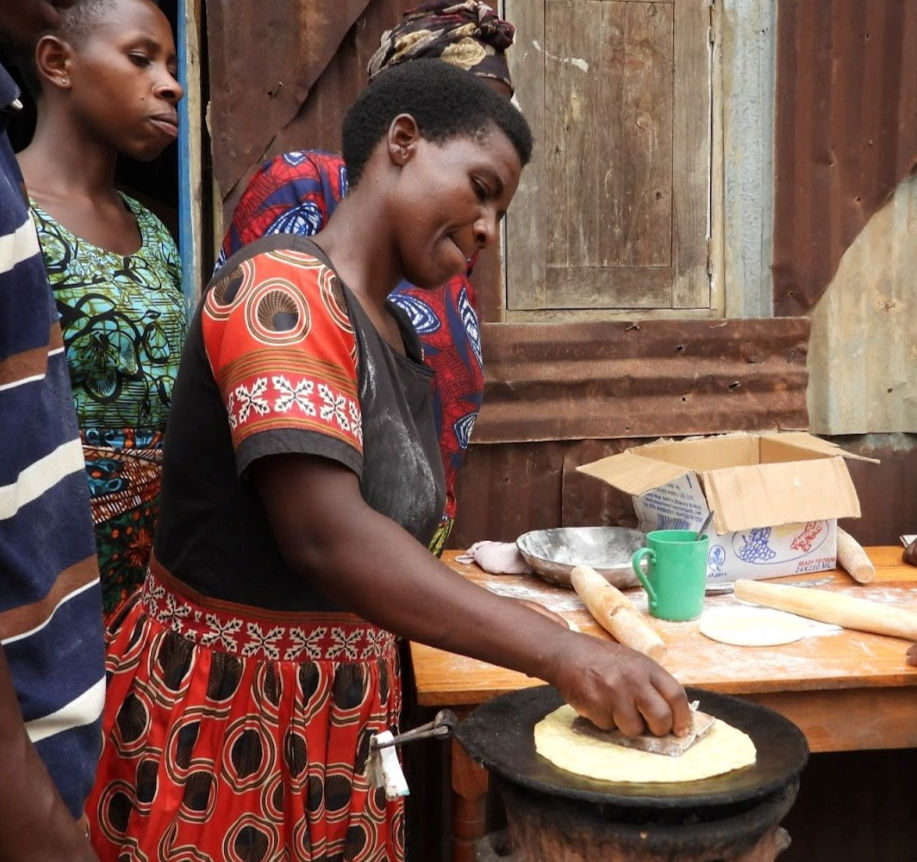Quarter 2, 2025.
- Natukunda Fortunate
- Sep 5, 2025
- 3 min read
Message from the Executive Director
Dear friends and partners,
This quarter has been a powerful testament to the resilience and creativity of the women we serve. From baking businesses in Rubanda to advocacy platforms in Kampala, Margaret & Emma Organization continues to walk alongside women as they build lives of dignity, skill, and purpose. Thank you for being part of this journey.
Warm regards,
Fortunate Natukunda, Executive Director

1. Skills That Bake Change
Our baking training in Rubanda ran throughout the quarter, engaging 40 women, 30 of whom completed the full program. Nyamiyaga Women’s Group has since launched a thriving mandazi business, while Skilling Ikumba members are baking independently from home. These women are now earning daily income and feeding their communities with pride.

2. Tailoring & Knitting: First Cohort Graduates
After seven months of training, three tailoring students sat for their final exams. Though four dropped out due to economic pressures, the success stories are inspiring. In knitting, three out of five trainees completed the course, despite equipment limitations. We’re working to expand access by sourcing more machines.
3. Collaboration in Action: Common Ground Project
In May, we partnered with Common Ground Project to train 20 women in tailoring and plastic tote basket making. Day one took place in Buhara sub-county Kabale, and day two at our Kabale headquarters. All participants completed the training and have formed peer support groups to continue practicing and growing their skills.

The CommonGround project (CG) is a four-year (2022-2026) Wageningen Environmental Research (WENR) project implemented by Integrated Seed and Sector Development (ISSD) Uganda, with funding from the Embassy of the Kingdom of the Netherlands in Kampala in partnership with other local partners (JESE, AID, Caritas Kabale and A2N Uganda). The project is rolled-out in the highlands of Uganda: Rwenzori (Ntoroko and Bunyangabu), Kigezi (Kabale, Rubanda and Kisoro and Elgon (Bududa). The project’s goal is to build 150,000 resilient smallholder farmer households in communities and watersheds in the highlands of Uganda, based on sustainable farming systems, restored watersheds, and improved marketing opportunities.
4. Mental Health & Civic Engagement
We proudly participated in the Uganda National Mental Health Conference (May 27–29), contributing to the national dialogue on building resilient communities. We also joined the launch of the Uganda Civic Space Index 2024, reinforcing our commitment to human rights and civic participation.
5. World Menstrual Health Day

On May 28th, we proudly partnered with the Youth Elevation Initiative in Kabale district to celebrate World Menstrual Health Day under the global theme “Together for a Period Friendly World.”
The day was filled with energy, education, and empowerment. We participated in a symposium on menstrual hygiene, trained students on how to use menstrual flow cups, and created safe spaces for young women to share their experiences and challenges.
This event wasn’t just about health, it was about dignity, inclusion, and breaking the silence around menstruation. Together, we’re building communities where every girl and woman can manage her period safely and confidently.
6. Advocacy Spotlight
Our team attended the Elective Annual General Meeting of the National Coalition of Human Rights Defenders Uganda, strengthening our governance role and reaffirming our commitment to legal compliance and human rights monitoring. This engagement ensures our voice remains strong in national advocacy spaces.
7. Challenges We’re Tackling
· Staffing constraints have delayed key reports and policy drafts
· Funding limitations have restricted training access and led to an August program pause.
· Dropout rates remain a concern, especially among single mothers facing childcare and material costs.
We’re responding with new strategies: recruiting support staff when funds allow, launching a childcare space for mothers with special needs children, and submitting multiple grant applications.
8. What’s Next
- Resume tailoring and knitting trainings
- Train mothers of special-needs children in plastic tote basket weaving
- Conduct a mid-term evaluation of our strategic plan
- Expand our fundraising efforts and partnerships



Comments